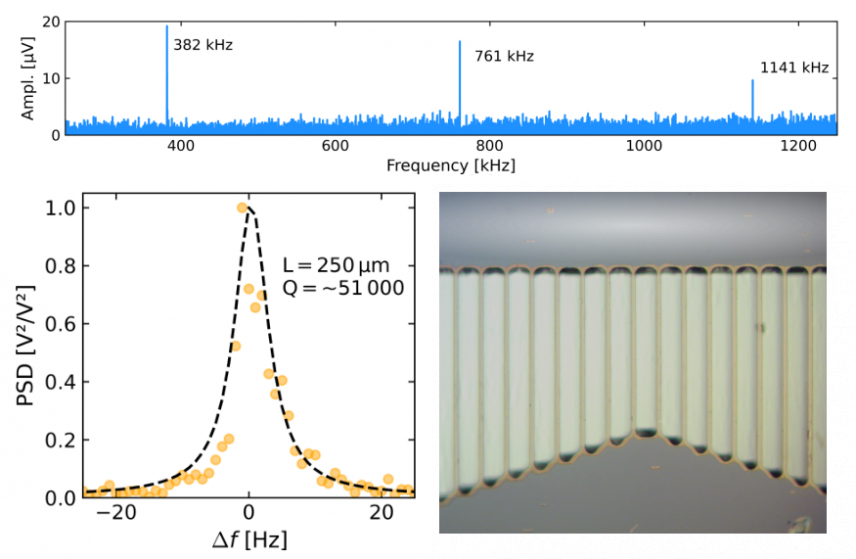In a recent paper just published in the journal SMALL, researchers from the CNR-SPIN and the University of Genoa show that micro-mechanical-systems made of (La,Sr)MnO3, a well-known magnetic oxide, have the potential to be employed as highly sensitive micromechanical resonators for detectors.
High-sensitivity nanomechanical sensors are mostly based on silicon technology and related materials. The use of functional materials, such as complex oxides having strong interplay between structural, electronic, and magnetic properties, may open possibilities for developing new mechanical transduction schemes and for further enhancement of the device performances. The integration of these materials into micro/nano-electro-mechanical systems (MEMS/NEMS) is still at its very beginning and critical basic aspects related to the stress state and the quality factors of mechanical resonators made from epitaxial oxide thin films need to be investigated. Here, suspended micro-bridges are realized from single-crystal thin films of (La0.7,Sr0.3)MnO3 (LSMO), a prototypical complex oxide showing ferromagnetic ground state at room temperature. These devices are characterized in terms of resonance frequency, stress state and Q-factor. LSMO resonators are highly stressed, with a maximum value of ~260 MPa. The temperature dependence of their mechanical resonance is discussed considering both thermal strain and the temperature-dependent Young's modulus. The measured Q-factors reach few tens of thousands at room temperature, with indications of further improvements by optimizing the fabrication protocols. These results demonstrate that complex oxides are suitable to realize high Q-factor mechanical resonators, paving the way toward the development of full-oxide MEMS/NEMS sensors.
N. Manca, F. Remaggi, A. E. Plaza, L. Varbaro, C. Bernini, L. Pellegrino, and D. Marré, “Stress Analysis and Q‐Factor of Free‐Standing (La,Sr)MnO3 Oxide Resonators”, Small 18, 2202768 (2022). DOI: 10.1002/smll.202202768


